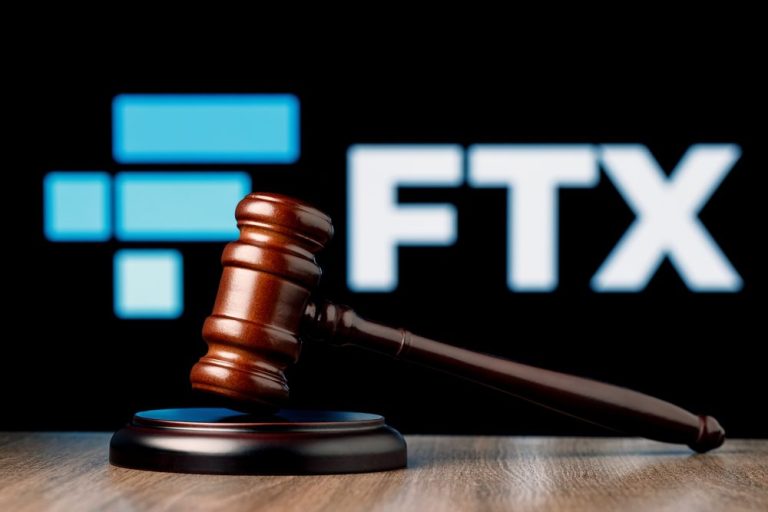‘Irreconcilable Conflict’ Emerges in FTX Crypto Bankruptcy As Non-US Investors Push Fight

Non-US customers affected by the FTX crypto bankruptcy fear their entrusted money could be “misappropriated” again.
That’s according to a formal complaint for declaratory judgment filed Wednesday night (Dec. 28) by the Ad Hoc Committee of FTX investors based outside the U.S., a copy of which was provided to PYMNTS.
The legal action, filed in the U.S. Bankruptcy Court, District of Delaware, lists three claims for relief surrounding non-US customer assets entrusted to the exchange and now locked up following FTX’s dramatic implosion last month.
As reported by PYMNTS, international customers of FTX.com have created an “ad hoc” committee to represent them in the company’s Chapter 11 case.
The ad hoc committee is led by Eversheds Sutherland attorneys Sarah Paul and Erin Broderick., who, on behalf of the committee, are seeking to establish that funds moved from customer accounts to other firms affiliated with FTX are not part of the FTX bankruptcy estate and should instead be returned to the possession of those customers.
Read More: More Back Doors Found in Bankman-Fried’s Black Box at FTX
Comprised of 15 members as of the complaint’s filing, the Ad Hoc Committee represents nearly $1.9 billion in aggregate claims. It has grown bigger each week since its Dec. 2 formation.
What the committee wants is its deposited money back.
According to the complaint, the three claims for relief seek declaratory judgments from the bankruptcy court that assets in customer accounts or assets otherwise traceable to customer accounts are not the property of the FTX estate; that unallocated or commingled assets be held in trust for the collective benefit of FTX.com customers and not treated as the property of the estate; and finally, that customer assets “including unallocated or commingled assets are held in constructive or resulting trust” for the benefit of customers and are not the property of the estate.
An official committee has “significant force” in a Chapter 11 case to act on behalf of those it represents, a representative for the law firm Eversheds Sutherland said.
The complaint argues that the declarations are warranted, “because these assets are customer property, and not the Debtors’ property, the assets are not part of the Debtors’ estates under section 541 of the Bankruptcy Code. So FTX.com customers are not mere unsecured creditors of the Debtors, but rather the owners of interests in property … If those assets can be identified, either because they remain on the platform or because they can be identified in another location, the customers are entitled to recover the assets, free of any claims of other customers or creditors.”
Front of the Line
FTX’s disgraced founder and former CEO, Sam Bankman-Fried, has been criminally charged with eight counts that range from fraud to conspiracy.
While he so far maintains his innocence, he is expected to submit a plea next week during his arraignment in Manhattan federal court on Jan. 3.
Two of his top executives, former Alameda Research CEO Caroline Ellison and FTX co-founder Gary Wang, have both pleaded guilty to criminal fraud charges brought against them and agreed to cooperate with authorities.
“There is no dispute that FTX.com customers were the victims of massive fraud and misappropriation of billions of dollars of their assets in violation of the clear and unambiguous Terms of Service,” the Ad Hoc Committee’s complaint reads. “Indeed, the Debtors’ new CEO, John J. Ray III, testified under oath to Congress that: “This is really old fashioned embezzlement. This is just taking money from customers and using it for your own purposes.’”
If the court does determine that the complaint is valid and makes the three declarations the committee seeking, then the non-U.S. FTX.com customers hope to establish a priority for their repayment over other creditors.
FTX.com was the largest exchange platform operated by the failed FTX enterprise outside the U.S.
Per court documents, Ray, appointed as CEO to oversee the FTX bankruptcy, has split the over 130 FTX affiliates into four different silos.
Little financial documents beyond simple charts and a list of the top 50 creditors have been made public, frustrating lawyers for the Ad Hoc Committee.
“There cannot be a fair or value-maximizing outcome in these cases if the only parties with a seat at the table are conflicted in the interests they are obligated to represent,” they said in a public statement.
For all PYMNTS crypto coverage, subscribe to the daily Crypto Newsletter.